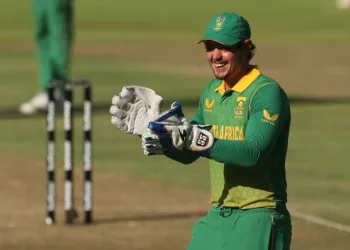In a current revelation by Ranjit Bajaj that could potentially rock the foundations of Indian football, recent events in the Delhi Football League have brought the persistent issue of match-fixing back into the spotlight. A match between Ahbab FC and Rangers, in particular, has become the centre of controversy due to incidents that many are calling clear evidence of match-fixing. With the sport’s integrity in question, stakeholders from all corners of Indian football are calling for immediate action.
The match in question ended with Ahbab FC conceding two own goals in the final minutes, securing a 4-2 victory for their opponents. The manner of these goals, with Ahbab defenders seemingly passing the ball into their own net, raised eyebrows and led to widespread accusations of match-fixing. Videos of these goals circulated rapidly on social media, igniting outrage among fans and experts alike.
Delhi FC owner, Ranjit Bajaj, an outspoken figure in Indian football, took to social media platform X (formerly known as Twitter) to express his dismay and anger over the incident. Bajaj’s comments shed light on what he perceives as a systemic problem within Indian football, suggesting that this is not an isolated incident but part of a broader pattern of corruption.
Ranjit Bajaj’s Bombshell Allegations
Ranjit Bajaj’s statements have added fuel to the fire, with claims that the I-League is also affected by similar issues. According to Bajaj, his investigations have uncovered startling evidence of match-fixing within the league, leaving him disillusioned with the state of Indian football. He alleges that the owner and major investors of three clubs in the Delhi Premier League—Ahbab FC, Rangers, and Juba Sangha—are the same individuals, making it easier to manipulate match outcomes.
Bajaj’s accusations extend beyond just the clubs; he also points out that the Delhi Football Association’s main partner is a betting company, suggesting a conflict of interest that could influence the integrity of the sport. Furthermore, he claims to have been approached with offers to fix matches, which he says confirms the existence of a network of “serial fixers” within the league.
Response from AIFF and the Football Community
In response to the outcry, Kalyan Chaubey, the president of the All India Football Federation (AIFF), has promised to investigate the matter thoroughly. The AIFF has called for an emergency meeting, and the Delhi Soccer Association’s President, Anuj Gupta, has been summoned to provide details on the incident and the association’s stance on these serious allegations.
The football community’s demand for accountability and transparency is growing louder. Fans and stakeholders alike are calling for swift action to be taken against those found guilty of corrupting the sport. The possibility of prison sentences for those involved in match-fixing has been mentioned, highlighting the severity with which many view these allegations.
Underlying Issue and the Path Forward
This scandal is a symptom of a larger problem plaguing Indian football—a lack of consequences for those involved in corrupt practices. Ranjit Bajaj’s revelations paint a grim picture of a sport undermined by its guardians, with match-fixing allegations casting a long shadow over the credibility of domestic leagues.
For Indian football to grow and achieve its potential on the international stage, these issues must be addressed head-on. The AIFF’s investigation into the matter is a crucial first step, but it will require a concerted effort from all stakeholders to eradicate corruption from the sport. Transparency, strict enforcement of rules, and severe penalties for those found guilty of match-fixing are essential to restore faith in Indian football.
As the investigation unfolds, the football community awaits decisive action. The integrity of the sport hangs in the balance, with the future of Indian football at stake. The hope is that this scandal will serve as a turning point, prompting a clean-up of the sport that many love and follow passionately.







